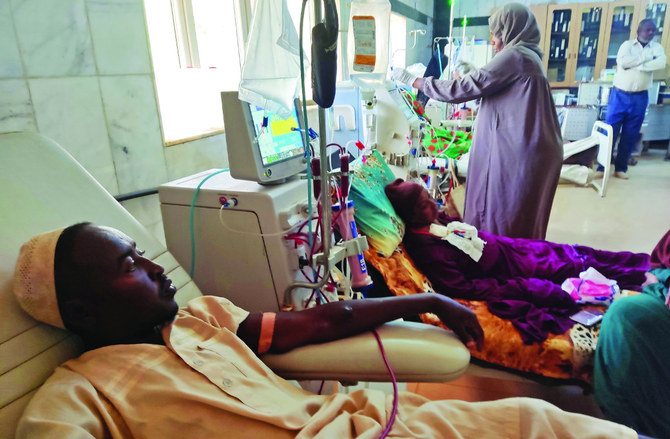HOSPITALS across Sudan have been bombed, looted and occupied by armed factions since fighting broke out more than two months ago between the Sudanese military and the Rapid Support Forces (RSF), a paramilitary group. As a result, millions of civilians are being denied vital healthcare.
Medical supplies rapidly dwindled after the conflict began on April 15, with shipments of medicines and other medical supplies stolen or undelivered. Meanwhile, scores of health professionals have been killed, wounded or forced to leave the country.
Dr. Adel Mohsen Badawi Abdelkadir Khalil, 65, is among the many medics who chose to flee with their families, abandoning the private clinic in the capital Khartoum he had managed for more than 15 years.
On April 21, fearing he would be conscripted by the RSF to treat the paramilitary group’s wounded, he made the painful decision to join the flood of refugees making the perilous journey north to the border with Egypt.
“I was inside my clinic preparing my tickets to go to Cairo when I saw attacks outside. People were yelling and weeping,” Mohsen told Arab News from an apartment in the Egyptian capital he shares with other displaced Sudanese families.
“I immediately locked all my doors and turned off the lights and hid there. If the RSF knows you’re a doctor, they will take you to tend to their army.”
Mohsen said that when he and his family caught the bus to Egypt, he was careful not to tell officials or fellow passengers he was a health professional, instead concealing his 30 years of medical experience for his own safety.
The public-health sector has long been fragile in Sudan, where 65 percent of the population lives in poverty. With the departure of so many medical workers, aid agencies have warned that the nation is facing a major health emergency. According to the International Committee of the Red Cross, only 20 percent of health facilities are still operational in Khartoum.
“We have been witnessing the near collapse of the health system in Sudan,” Alyona Synenko, the Africa region spokesperson for the organisation, told Arab News.
Those unable or unwilling to flee Khartoum have been forced to hunker down in their homes with little or no access to clean water or electricity. According to several Sudanese refugees Arab News spoke to in Cairo, many of those who remained behind face the threat of dehydration and starvation, such is the scale of the need for aid in Khartoum and nearby cities.
The collapse of basic utilities and other public infrastructure is having an especially serious effect on hospitals by undermining their hygiene protocols, rendering vital medical equipment inoperative, and depriving chronically sick people of potentially life-sustaining treatment.
“Besides the departure of some of the medical personnel and the shortages of medical supplies, hospitals are suffering from a lack of food, clean water and electricity,” said Synenko.
